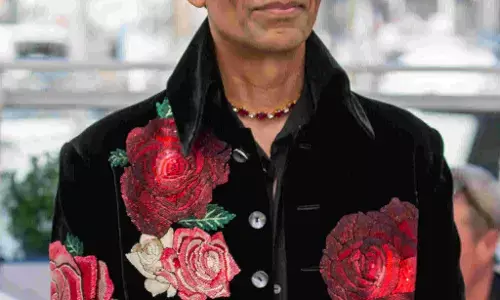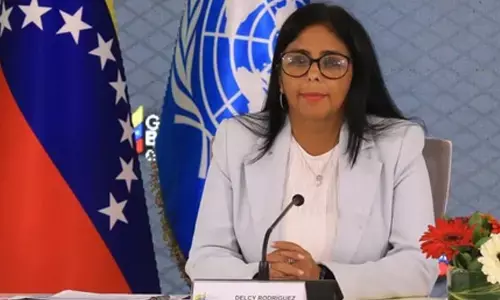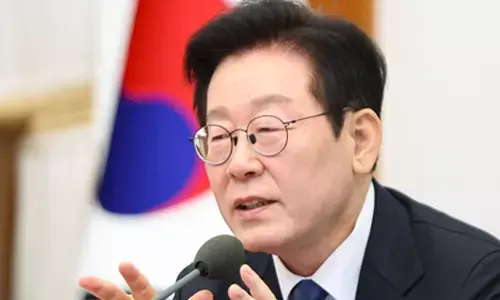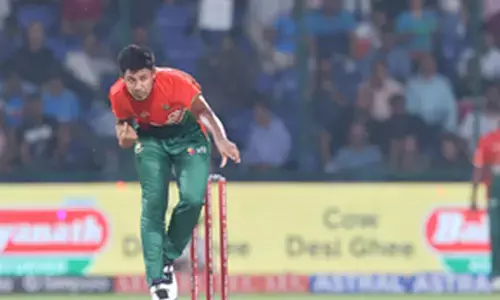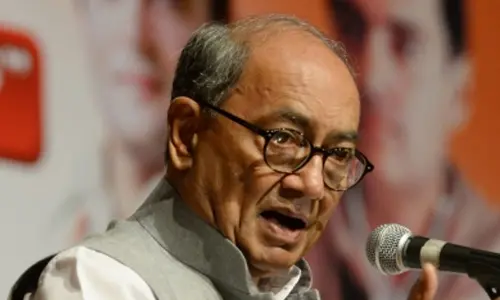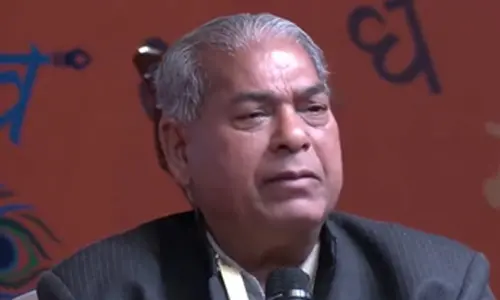New criminal laws freed India from colonial legacy as envisioned by Constitution: PM Modi
Share :
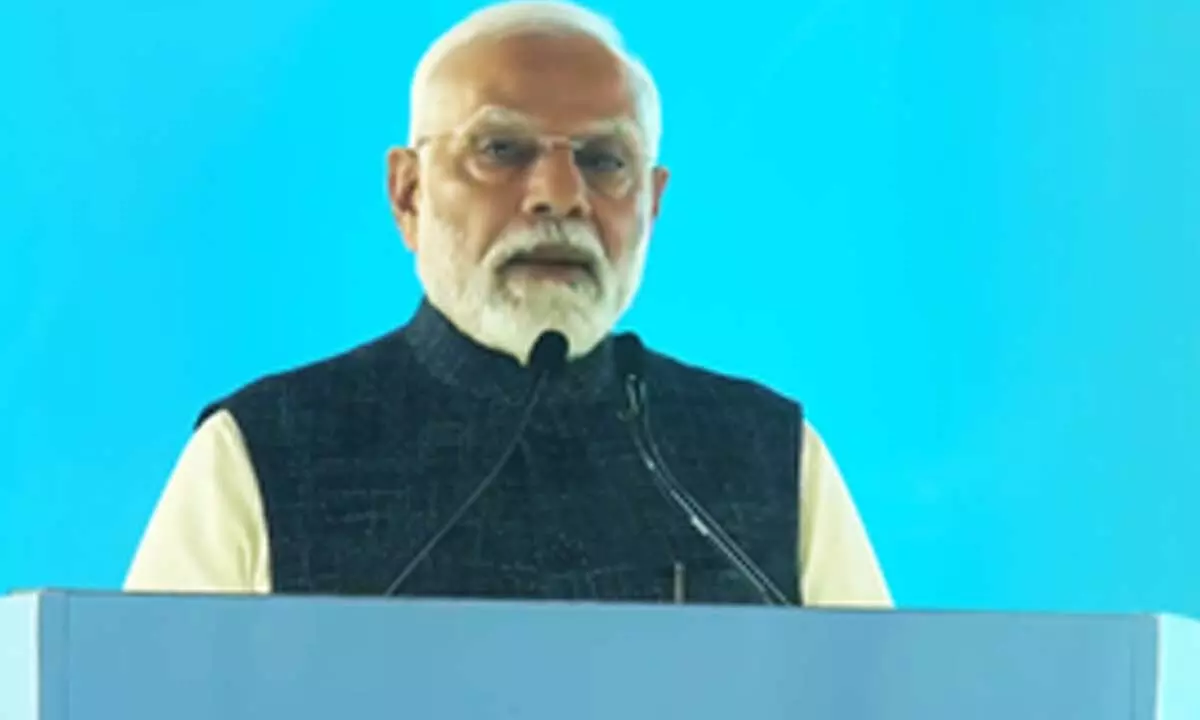
Prime Minister Narendra Modi on Tuesday said the three new criminal laws “freed India from colonial legacy” as they “are a concrete step towards fulfilling the ideals that Constitution has imagined for the country”.
Chandigarh: Prime Minister Narendra Modi on Tuesday said the three new criminal laws “freed India from colonial legacy” as they “are a concrete step towards fulfilling the ideals that Constitution has imagined for the country”.
Speaking at a programme to mark the implementation of the new criminal laws in Chandigarh, the joint capital of Punjab and Haryana, PM Modi said, “It’s (the new criminal laws) a concrete step towards fulfilling the ideals that our Constitution has imagined for the citizens of our country...In the seven decades after Independence, the challenges faced by our judicial system were studied and thought upon. Behavioural aspects of all the laws were analysed. I thank the Supreme Court, judges and High Courts, especially of Punjab and Haryana, and Bar (association) who have taken the ownership of Nyay Sanhita.”
He said decades after Independence, “our laws were revolving around the same penal mindset. Over time, efforts were made to make some little changes in laws, but their characteristic remained the same.”
PM Modi said, “At a time when the country is moving forward with the resolve of a united India, and as we celebrate 75 years of the Constitution, the implementation of Indian justice inspired by the spirit of the Constitution marks a significant beginning.”
Earlier, PM Modi along with Union Home Minister Amit Shah and Punjab Governor and Chandigarh Administrator Gulab Chand Kataria, inspected the exhibition depicting the implementation of three criminal laws on the campus of Punjab Engineering College.
PM Modi was briefed by Senior Superintendent of Police (SSP) Kanwardeep Kaur about the implementation of three transformative new criminal laws in Chandigarh with registration of 900 plus first information reports (FIRs) and four convictions in the past five months.
These laws aim to overhaul India’s criminal justice system, focusing on transparency, efficiency, and addressing modern challenges.
PM Modi also inspected the exhibition depicting the implementation of criminal laws by simulating a crime scene investigation on the campus of Punjab Engineering College, where a dummy police station was set up.
The presentation, themed “Secure Society, Developed India: From Punishment to Justice”, took place at an exhibition spread across eight stations, providing Prime Minister Modi with a live experience of how law enforcement, forensic teams, judicial authorities and prisons have become more efficient and technology-driven since the implementation of the laws.
A crime scene was depicted with a distress call at the Police Control Room. At the crime scene, the e-Sakshya app digitally recorded all evidence from the scene, including photos, videos and timestamps, which are then sent directly to the court. In this scene, the forensic team collects crucial evidence, while the “victim’s family member” identifies the body.
Home Minister Shah was seen explaining to Prime Minister Modi about the operation of the new laws for speedy justice, starting from the collection of evidence at the crime scene to providing solace to the victim’s family.
Speaking at the programme, Home Minister Shah said, “In the new laws, treason (deshdroh) has replaced sedition (rajdroh), which was there for centuries.”
He said earlier laws were made in the British parliament, they were more for the protection of British rule and not for the people. “The laws that PM Modi has brought are made by Indians, in the Indian Parliament and to deliver justice to the people... These laws have no place for punishment but justice. It will be implemented in the entire country within three years.”
He said PM Modi has created the world’s most modern criminal justice system to build a secure and developed Bharat for all.
Chandigarh is the first city in the country where 100 per cent implementation of all three laws has been completed.
The three new criminal laws -- the Bharatiya Nyaya Sanhita, the Bharatiya Nagarik Suraksha Sanhita and the Bharatiya Sakshya Adhiniyam -- replaced the British-era Indian Penal Code, Code of Criminal Procedure, and Indian Evidence Act, respectively, came into effect from July 1.
These landmark reforms mark a historic overhaul of the criminal justice system, bringing in new frameworks to tackle modern-day challenges such as cybercrime, and organised crime and ensuring justice for victims of various offences.
The local police also showcased the functionalities of applications such as e-Sakshya, Nyay Setu, Nyay Shruti and e-summons, which have been developed by the National Informatics Centre in collaboration with the National Crime Records Bureau.
Before heading to Chandigarh, PM Modi wrote on X, “A special day in our efforts to ensure speedy justice for every Indian and, at the same time, break free from colonial mindsets…will join the programme in Chandigarh to mark the successful implementation of the three new criminal laws…It’s a matter of immense joy that these laws are coming into being at a time when we mark 75 years of our Constitution being adopted by the Constituent Assembly.”
The conceptualisation of the three laws was driven by the vision of the Prime Minister to remove colonial-era laws that had continued to exist post-Independence and to transform the judicial system by shifting focus from punishment to justice.







